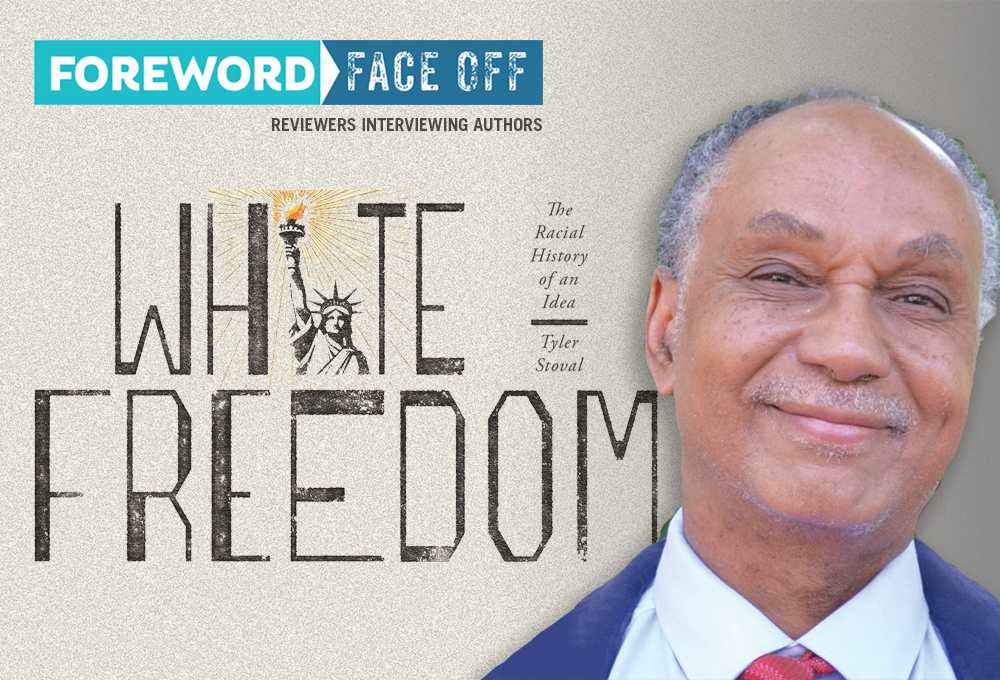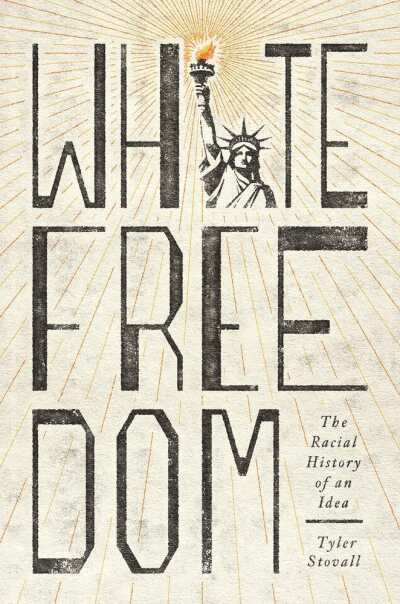Reviewer Tanisha Rule Interviews Tyler Stovall, Author of White Freedom: The Racial History of an Idea

Welcome to February: Black History Month 2021—and not a moment too soon. Judging by the racial fireworks we’ve lived through the past several months, this nationally recognized twenty-eight day holiday is needed more than ever.
Back in 2016, Barack Obama put to words the whyful importance of devoting this wintry month to the honor of Black Americans: “It’s about the lived, shared experience of all African Americans, high and low, famous and obscure, and how those experiences have shaped and challenged and ultimately strengthened America. It’s about taking an unvarnished look at the past so we can create a better future. It’s a reminder of where we as a country have been so that we know where we need to go.”

This week, we’re honored to have Dr. Tyler Stovall join us to talk about that “unvarnished look” part. It’s a much needed conversation because too many people in our country still can’t seem to handle the fact that the pledge-of-allegiance promise of “one nation under God, indivisible, with liberty and justice for all” is, and always was, BS.
In his new book, White Freedom: The Racial History of an Idea, Dr. Stovall documents how the freedom of whites in America was always understood to be dependent of the oppression of Blacks, Native Americans, and other ethnic groups, in addition to women. In her review of White Freedom for the Jan/Feb 2021 issue of Foreword, Tanisha Rule writes, Stovall’s research “strengthens the case that concepts of freedom and liberty in the United States have always worked as intended—to uphold the systemic racism of the land.”
Unfortunately, to a great extent, Black history in America is inseparable from the racism and oppression Blacks have always been subject to by whites. Imagine how different this country would be if that weren’t true.
With the help of Princeton University Press, we connected reviewer and author for the following discussion. As always, please share this interview with others who might want to join our Foreword This Week community. Your support is hugely appreciated.
Tanisha, take it from here.
Dr. Stovall, your new book, White Freedom, confronts the argument that race and racism stand in contrast to the American idea of freedom. Can you explain what readers can expect to find in your book that challenges the idea?
I argue that race and freedom in America are unified by the idea that freedom is for whites, and that being free is an essential part of what it means to be white in America. Therefore, there is no contradiction because racism is built into our notions of what it means to be free.
How did you come to love history, and French history in particular?
As a kid I always loved stories, both when I was very little and my parents read them to me, and as I grew older. For me, history is another type of story, one all the more fascinating because it happens to be true. Moreover, history is the story of how people have acted to change their world, so I therefore consider it a source of political inspiration. My specific interest in French history came about accidentally: the professor I chose to work with in graduate school, Harvey Goldberg, was a French historian, and he convinced me to specialize in the area. I’ve enjoyed it for many reasons, notably the fact that it is both similar to and at times very different from the history of my own county.
There is a terrific section of the book that expounds on the Statue of Liberty and how meaning and symbolism can change over time or be outright distorted. What aspect of the Statue of Liberty’s history do you think might be most surprising when juxtaposed with what the statue symbolizes?
Certainly, the link between the Statue of Liberty and the end of slavery in America is just now starting to be widely recognized. I would also say my idea that the Statue never really embraced immigrants, but rather their assimilated (and white) descendants came as a surprise to me, and doubtless will to many others.
When did you know a book like White Freedom had to be written, and what moved you to take on the topic?
Some ideas just won’t leave you alone! I’d toyed with the idea for some time, but what really pushed me to move ahead with it was the debate over slavery and the building of the US Capitol with which I open the book. It illustrated for me the tremendous difficulty Americans had in integrating the story of slavery into the broader narrative of America as the land of the free, and thus made me feel I needed to explore the idea and ultimately to write this book.
What has been the overarching reaction to your book and ideas as far as discourse? Do you find that there is more resistance to your idea, or more open-mindedness to admit, or at least consider, that there is truth in the core principles of White Freedom?
Since the book won’t appear in print until tomorrow (January 17), I guess that waits to be seen! I can say that I’ve given a few talks based on these ideas and have found people receptive to them. Of course, the circumstance that it is appearing in the midst of a national (indeed global) reckoning about race will certainly influence people’s reactions to my book, but beyond that I cannot yet say.
Tanisha Rule
